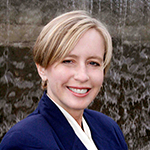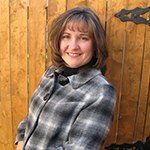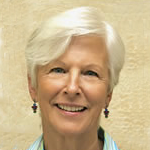Snohomish Washington Karen Hansen, PhD, LMHC, CPC

Karen Hansen is a licensed psychotherapist serving Seattle’s Eastside for 15 years. You may be feeling overwhelmed by a difficult life-transition or crisis such as the loss of a loved one, a chronic illness. Karen has the training and experience to help you with difficult times in your life or the life of a loved one.
Jason Esswein, M.S., LMFT, Expands Counseling Services Practice to Offer HSP Therapy
HSP stands for Highly Sensitive Person. Jason Esswein, M.S., LMFT, is dedicated to helping HSPs, both children and adults, by equipping them with various tools, strategies, and techniques to help them stay grounded, centered and effective in their daily lives.
World Wide Web – March 12, 2013 Jason Esswein, of Jason Esswein Counseling Services, is now offering services to Highly Sensitive People (HSPs). The focus of these services is on building skills to more effectively center oneself in a world filled with distractions, thereby obtaining more peace, joy and an overall positive sense of well being .
The term HSP (Highly Sensitive Person) refers to people who process information differently than most in that they tend to perceive events more intensely than others and reflect more deeply on issues and experiences than the general population. Unfortunately, although HSPs comprise roughly 15 to 20% of the population, they are often misunderstood. The highly sensitive person can be more aware of others, which at times can lead to feelings of being overwhelmed. This, in turn, often has lasting consequences in terms of these individuals’ self-esteem and sense of self-worth as well as lead to anxiety and depression.
Jason Esswein Counseling Services offers customized services to meet the needs of the HSP population, a population that faces especially difficult challenges given much of Western culture tends to devalue issues such as sensitivity, boundaries, and consciousness.
Jason’s counseling and psychotherapy services help individual adults, children and couples increase their self-awareness. Jason has worked extensively with clients to help them overcome anxiety, depression, bipolar disorder and other conditions with the goal of fostering insight so they can resolve unhelpful feelings and improve relationships with increased self-confidence and self-esteem. He also offers parent counseling and individual life coaching services.
Jason Esswein, M.S., LMFT, received his B.A. in Clinical and Counseling Psychology from San Jose State University. He graduated Summa Cum Laude with an M.S. in Clinical Psychology from San Jose State University in 1999. He launched his private counseling and psychotherapy practice in San Jose, California, in 2005, in order to provide a confidential setting in which clients feel safe, valued, and supported.
Jason helps HSPs learn the tools and skills necessary to not only cope and survive, but thrive. This is accomplished through a variety of techniques, including talk therapy, relaxation and mindfulness-based exercises, as well as “homework” assignments that help HSPs learn to stay grounded and centered in what often feel like overwhelming circumstances. For example, many HSPs experience significant anxiety around large groups or crowds.
This is often because they are absorbing OPE (other peoples’ energy) without being aware of it, which can cause them to feel bombarded with excessive stimulation and emotions that are not their own. Fortunately, with training and practice, HSPs can learn to monitor their sensitivity and awareness, set healthier boundaries, and remain calm and centered in these and similar situations so they can move forward and have fun experiencing all of the variety life has to offer.
Jason Esswein is dedicated to informing the public about the special challenges faced by HSPs as well as helping individuals embrace what being an HSP means for them. The website for Jason Esswein, M.S., LMFT, is an information rich hub that is a current display of Jason’s commitment to raising awareness and helping individuals manage their gifts to function optimally in the world. The website provides resources that clients can draw upon as well as the ability to easily schedule consultations and appointments through an online booking system.
Learn more by visiting: http://jasonesswein.com/
E-mail: jason@jasonesswein.com
Jason Esswein, M.S., LMFT
Jason Esswein Counseling and Psychotherapy Services
1936 Camden Avenue, Suite 9
San Jose, CA 95124
Phone: (408) 975-2982
How Do Therapists Sit with the Pain?
Many people often wonder how psychotherapists can sit with the heavy burdens and pain expressed by their clients. I want to take a moment to give my perspective on how this is possible for anyone to accomplish, if not do and feel they’ve had a rewarding, meaningful experience.
We’ve all been to some kind of party or gathering when we weren’t feeling our best. Given that it’s not always socially acceptable to let our true feelings show, participating at a social event in this state of mind, (especially with those we don’t know well) can be exhausting at best, excruciating at worst.
Then, when the Universe allows, or we’re open enough to see the opportunity, someone in the party appears to be genuine. There, in that moment, you might feel that it’s okay to be more fully yourself, to relax a bit, to not feel as compelled to participate in the “social dance” in which you find yourself surrounded.
We feel we can take at least one deep breath, possibly even realize we may not have been breathing fully at all. If we’re lucky, that person may talk about how they’re actually feeling or what they’re thinking (i.e., “I’m a little nervous at social gatherings” or “I’m annoyed with my boss.”) This then gives us permission to be authentic as well. I will never forget my colleague’s quote, “Nobody real is boring.”
This experience can be easily compared to therapy. While no type of suffering is enjoyable, there is a meaningful interaction created when one shares themselves vulnerably and authentically. Every time I witness a client taking a risk (no matter how small) there is a sense of communion and presence that is palpable. Think of those times when a friend, coworker, or family member finally revealed to you a glimpse of their inner world and you felt that sense of connection. Feelings and thoughts simply are. Its what we do with feelings that is most important. If nothing else, an instant sense of respect and reverence is established. I, like other psychotherapists, believe it is a privilege to be part of peoples’ personal and spiritual growth process.
Jason Esswein is a licensed marriage and family therapist in south San Jose, CA. He works in private practice with individual adults, couples, and children.
jason@jasonesswein.com
www.jasonesswein.com
(408) 975-2982
What Are You Broadcasting?
Do you find yourself asking the following questions: Why does this keep happening to me? Why do I keep dating the same people? Why do I always end up in these situations? If so, I would encourage you to take a serious, courageous look at what you might be “broadcasting”.
Despite our best efforts to hide our true feelings or fears, we always communicate in one way or another. Communication researcher James Borg asserts that 93 percent of communications is nonverbal: “…the way you say something – using behavioral cues like facial expressions, pace, pitch, tone and posture – can say a lot more than the actual words you select.” So, with that in mind, it is important to uncover what we are “broadcasting” through our non-verbal cues. Once we have discovered what we are truly “saying,” is this something we’re genuinely willing to change?
Creating the same unhealthy situations and patterns in relationships is often the result of things we’re broadcasting without any awareness. This can be seen in many obvious, as well as subtle, ways. For example, driving behavior can reveal the driver’s emotional state so clear it might as well be written on a neon sign. How fast do they accelerate? Brake? Weaving? The tone and volume of voice is also very telling. Do people speak loudly, or so softly that they are practically inaudible? How do people put things down or close cabinets and doors? With an unnecessary amount of force or only what is required? Also, what about their breathing? Do they often sigh as if their time is being wasted when another speaks or do they frequently cut people off?
Whether we want to or not, we cannot not communicate. Eckhart Tolle (A New Earth, 2005) often describes the energy fields we emanate. According to Tolle, “regardless of what you say or do, or what face you show to the world, your mental-emotional state cannot be concealed. Every human being emanates an energy field that corresponds to his or her inner state. Most people can sense it, although they may feel someone else’s energy emanation only subliminally, that is to say, they don’t know that they sense it, yet it determines to a large extent how they feel about and react to that person. Some people are most clearly aware of it when they first meet someone, even before any words are exchanged. A little later however, words take over the relationship and with words come the roles that most people play. Attention then moves to the realm of mind, and the ability to sense the other person’s energy field becomes greatly diminished. Nevertheless, it is still felt on an unconscious level.”
Although “energy field” can sound a little strange to some, we all usually refer to it when asking questions, such as “What was your vibe on that guy”, or “what’s your sense of that church” or “did you get a read on her?” These are all examples of people describing their experience of someone’s energy field. Remember, just because we cannot see something does not mean it does not exist (i.e., microwaves, radiation, radio and cell phone signals). Energy fields are just as real as physical matter. In fact, Albert Einstein discussed how matter is energy, only it is energy vibrating at a slower speed. The implications of this are enormous. It could be argued that our energy field or “broadcast” actually creates our physical reality!
A more obvious broadcast can often be easily observed when hearing the music being played on someone’s car stereo when stopped at a traffic light. People often choose the type of music that mirrors their current emotional landscape (i.e., songs involving joy/connection, violence/anger, breakups/sadness). For example, a woman who just met the man of her dreams may be listening to “At Last” by Etta James or a man who just filed for divorce may listen to “Outside” by Staind.
In order to be more aware of and influence our “broadcast” to others, it takes a willingness to get in touch with (and pay conscious attention to) what we’re thinking and feeling on a regular basis. Are we angry, sad, frustrated, and worried, or are we feeling relatively calm, hopeful, and happy? The more we become conscious of our thoughts and feelings, we will have more choices available to us. More specifically, when we are triggered (when we become upset by a thought, word, or event) we will have far more choices and impulse control at our disposal when responding — versus reacting.
An important question to ask is “How do we want someone to experience us when we’re communicating or simply in another’s presence? There is a saying that “some people bring joy to a room when they enter, others when they leave.” We have all felt lighter when someone has entered our space, as well as better when they left. We undoubtedly have experienced the reverse without even being aware of it; our presence has either added to or taken away from the well-being of others, particularly when we were in a negative state. I’d like to suggest that we all give someone an experience of the world as safe and benevolent rather than hostile and cold. Remember that everything we say and do does one of two things: it creates closeness or distance (rarely anything in between). So, how do we go about even knowing what “station” we’re transmitting?
There are several practical ways we can become more in tune with what we’re giving off energetically. A helpful exercise is to look in the mirror before starting your day. Relax your face and look back at yourself with a “soft gaze.” If someone was looking into your eyes, how do you think they would feel? What might they think? Now, it’s time to set your intention for the day. How do you want others to experience you: present, kind, impatient, or angry?
Remember to pay attention to your breathing. Medical professionals know and emphasize the importance of deep, full, and controlled breathing for self-soothing, calming ourselves down enough to be able to think clearly, and overall improvement in health. Take time to yourself daily (at least 5 minutes 3 times throughout the day) to slow your breathing and allow yourself to feel the various sensations/energies that run through your body. This aids in centering and clarity. Allow those sensations (even the negative, heavy, fearful/panicky ones) to just be, without fighting or resisting them. Resisting what is your current emotional-mental experience only magnifies it, adding further upset (i.e., panicking about feeling fear) to an only temporary uncomfortable experience. This is part of the process of becoming present. The more we give our conscious attention/awareness to these feelings, what Eckhart Tolle calls “pain bodies,” the more they dissolve.
Awareness of how we’re really doing is crucial if we want to have more choice. Whether that choice is how we project ourselves throughout the day, who we select as a life partner, or how we shape our relationships with our families and colleagues, our “broadcast” will always play a central role. Our thoughts and feelings, particularly those that remain unexamined and/or out of our conscious awareness, readily trigger emotional responses and a corresponding broadcast via emotional energy.
Psychotherapy is an ideal environment to explore these thoughts and feelings within the context of a safe and trusting relationship with a competent therapist. Make sure that your potential therapist is open to an “interview” before formally beginning counseling as an appropriate match is crucial. If the right connection does not exist between you and your therapist, effective therapy may not be possible. Above all else, you need to feel comfortable, safe, and free from judgment before it’s possible to trust someone with thoughts, feelings, and actions that you may not even feel comfortable repeating to yourself when alone. Therapy can also help with general communication strategies that can greatly improve our relationships through insight and self-awareness.
Jason Esswein is a licensed marriage and family therapist in south San Jose, CA. He works in private practice with individual adults, couples, and children.
jason@jasonesswein.com
www.jasonesswein.com
(408) 975-2982
Columbus Ohio Grief Counselor Carrie Dennis

Carrie D. Dennis is a licensed professional clinical counselor serving Columbus, Ohio for the last 10 years and has traveled to Newark, Ohio for the last 3 years. Carrie concentrates on individuals and families in therapy with an emphasis on grief counseling. The focus is to help others to process their loss, to bring comfort, and wholeness again to those who have lost a dear loved one.
Mount Laurel New Jersey Grief Counselor Dr. Samuel Verghese
Dr. Samuel Verghese of Mount Laurel, NJ, author of “Brain Power” and “The Complete Stress Management Workbook” has successfully helped individuals walk through the grief process and challenges encountered when adjusting to life without a loved one. He has given seminars and done missionary work around the world, including Peru, Amazon jungle, India and the Philippines. Dr. Verghese’s focus is to help individuals neurobiochemically, nutritionally, emotionally, mentally, and spiritually.
Pleasanton California Grief Counselor Gail Gabriel, MFT

Gail Gabriel is an experienced, collaborative and kind licensed Marriage and Family Therapist providing Grief Counseling to individuals, families and couples in the Pleasanton, Dublin and Livermore Tri-Valley Area. Grief comes in many forms following loss, whether from illness, death, trauma, divorce or devastating disappointment and its symptoms range from anger, anxiety, and despair to debilitating physical problems. Grief counseling with Gail helps you manage the torrent of emotional experience, create a narrative that makes sense, solidify memories to be treasured, internalize personal values, integrate the past with the present, and helps you find the courage to risk reconnecting to the future.
Waterford Connecticut Grief Counselors New London County Psychologists and Counselors

New London County Psychologists and Counselors is an addictions will help you to find a counselor for your specific situation. No matter what the issue is you need help with, they will work to help you find a good fit. There is no charge for the assistance in finding someone.
Connecticut Elementary School Tragedy Brings Grief to Us All
 The adminstrators of GriefCounselingLocator.com wish to express their sincere condolences to the families of the Connecticut elementary school tragedy this morning.
The adminstrators of GriefCounselingLocator.com wish to express their sincere condolences to the families of the Connecticut elementary school tragedy this morning.
Our president, Marty Dickinson, went to high school not more than 40 minutes away from Newtown, CT where the event occurred and likely went to school with some of the parents that send their children to the Newtown school.
Miles away from the event here in Colorado, we mourn the senseless taking of lives in the elementary school tragedy as well as other recent happenings in our country.
The prompting of this post was as a result of a very helpful article on our local 9news station about how to talk to children about tragedy. Please take a few moments of your day and read through these high quality tips and give your kids a hug tonight and tell them you love them.
San Jose California Grief Counselor Jason Esswein, MS, LMFT

Jason Esswein is a grief counselor serving San Jose, California since 1998. Jason’s focus is to help clients recognize, process, and transition through grief. He is known for his ability to be acutely present and provide honest feedback with compassion and kindness.
